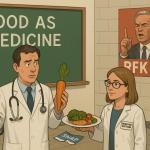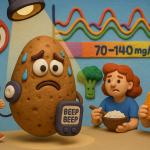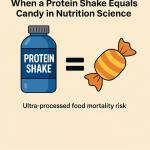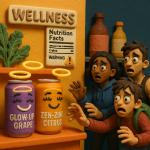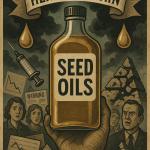There's almost no medical schools that have nutrition courses, and so [aspiring physicians] are taught how to treat illnesses with drugs but not how to treat them with food or to keep people healthy so they don't need the drugs
Food & Nutrition
Our bodies maintain glucose concentrations between 70 and 140mg/dl when our metabolic function is normal. Blood glucose rises in response to a meal and then declines back to its baseline, a pattern that CGMs can characterize.
It is common knowledge that a diet rich in ultra-processed foods is one of many factors that can increase the risk of developing chronic non-communicable diseases.
Ambiguous definitions and growing public concern fuel the debates over the health risks of ultra-processed foods (UPFs).
Energy drinks are increasingly styled not as edgy or dangerous but as wellness products.
If your wine smells like wet dog, soggy cardboard, or grandma’s basement, don’t blame the dog. A strange phenomenon called "cork taint" arises from groundwater pollution followed by microbial metabolism.
“Don’t eat anything with more than five ingredients, or ingredients you can't pronounce.”
– Michael Pollan
Cinnamon may have many uses in the kitchen, but its popularity is surging for other reasons. In the past, research has shown it could reduce blood glucose levels in Type 2 diabetes, as well as improve other conditions.
Seed oils have had a rough ride, especially since MAHA took over.
Join Cameron English and Dr. Chuck Dinerstein on Episode 114 of the Science Dispatch podcast as they discuss:
